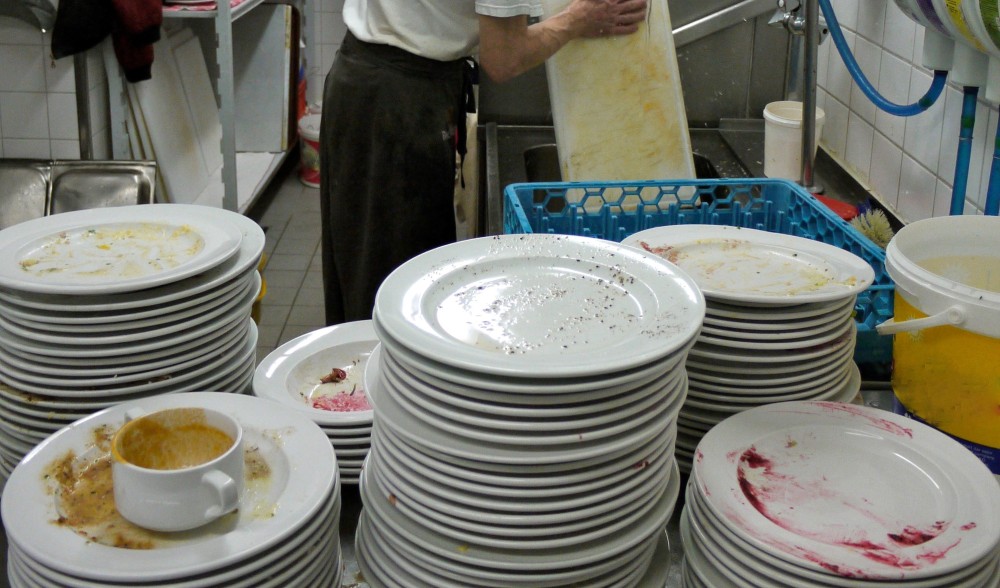Wanting to do the dishes
We’re preconditioned for self-gain and not for self-sacrifice. We need God’s help not only to do better but to want to do better.

I’ve used it in a sermon before, but I never get tired of being reminded by Jennifer Aniston and Vince Vaughn that sometimes in a relationship motivation is more important than behavior. In a scene from The Break Up, after a dinner party, Aniston’s character goes into the kitchen to do dishes while Vaughn’s character sits on the couch, playing a video game. When she asks for help, he reluctantly agrees, but she’s not satisfied. Eventually, as the argument heats up, she says, “I want you to want to do the dishes!" to which he replies, “Why would I ever want to do dishes?” What makes it so good is that it’s so real:
It may not get much attention, but this Sunday we Episcopalians will pray a collect from the Book of Common Prayer that begs God to help us want to do the dishes—and everything else that God would want us to do: “Almighty God, you alone can bring into order the unruly wills and affections of sinners: Grant your people grace to love what you command and desire what you promise; that, among the swift and varied changes of the world, our hearts may surely there be fixed where true joys are to be found; through Jesus Christ our Lord...”




